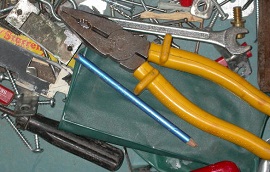When you are looking to install a heating solution in your home, you are likely to be faced with a choice between a furnace and a heat pump. Unfortunately, many homeowners remain a little confused about which is the most appropriate choice for them. Knowing the differences between these two options will assist you in making a well informed choice.
Heat Pump Basics:
Heat pumps use refrigerant to transfer energy to heat a home. A heat pump can also help you to reduce the indoor temperature. Heat pumps operate using electricity to move the heat, but they are very efficient and can be integrated into both your cooling and heating system.
Furnace Basics:
Furnaces can use a variety of fuel sources to generate heat. There are models which can use natural gas, coal, wood or oil to produce heat. The operating costs for a furnace will depend greatly on the cost of your preferred fuel source. A furnace is not a standalone heating option as it needs a complete system featuring ductwork, fuel ignition method, and a blower. This will require far greater space for both installation and operation. In many homes, a furnace is integrated into the air conditioning system, which allows the ductwork to be shared for a complete HVAC system.
Heat Pump vs. Furnace:
There are pros and cons associated with both of these options. While a heat pump may be more energy efficient, they are best suited to moderate climates. In some cases, you may need a supplemental source of heat for when the temperatures drop to much lower levels.
In some areas, you may find that a furnace offers the most cost effective solution for your home. Your area may offer natural gas or heating oil to fuel your furnace which works out cheaper than the electricity needed for a heat pump. Another consideration is that heating with a furnace can produce odors and residues inside the home. You will also find that a furnace will transfer heat, so you will need an area in your home which offers a clear space to avoid the risk of fire. Most experts recommend that a furnace has at least two feet of clear space on all sides.
Generally, heat pumps are easier to maintain, yet newer models feature filters which will improve the air quality inside your home. While a furnace will require regular annual maintenance to ensure it continues operating at peak efficiency and performance, a furnace will typically have a longer lifespan. Your average heat pump has a lifespan of ten to fifteen years, but a typical furnace has a lifespan of more than twenty years.
If you are still unsure about whether a heat pump or furnace is the best choice for your home, it is a good idea to consult a professional heating specialist. Trained, experienced technicians will be able to assist you in assessing the merits and flaws of each system to determine which is best suited to your specific needs and requirements.
